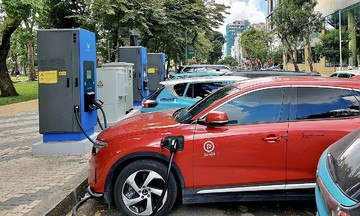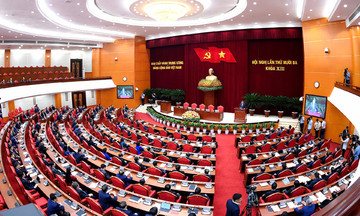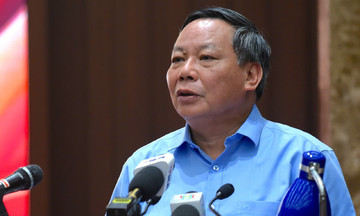The Ministry of Home Affairs recently submitted a draft decree to the Ministry of Justice for appraisal, detailing several aspects of the Law on Employment concerning job creation support policies. A notable addition is the regulation of working hours, rest periods, and overtime pay for public works employees.
The draft decree proposes a maximum workday of 8 hours and at least one 24-hour rest day per week. In special cases due to work cycles, employees are entitled to a monthly average of at least 4 rest days. If overtime is required, the total working hours, including overtime, cannot exceed 12 hours per day.
Overtime pay is calculated at a minimum rate of 150% of regular wages for weekdays, 200% for weekly rest days, and 300% for holidays. These rates, based on existing labor laws, specifically apply to public works employees.
Public works employees participate in community projects under government policies, receiving daily or hourly wages, distinct from contract workers in businesses.
Under the current Labor Code, regular working hours are capped at 8 hours per day and 48 hours per week, with at least one rest day per week or a monthly average of 4 days in special cases. Overtime work requires employee consent and cannot exceed legal limits. Overtime pay is at least 150% for weekdays, 200% for weekly rest days, and 300% for holidays.
 |
Hanoi Public Administrative Service Center. Photo: Tung Dinh |
Hanoi Public Administrative Service Center. Photo: Tung Dinh
Increased loan limits for job creation support
The draft also significantly raises loan limits for job creation support. Small and medium-sized enterprises can borrow up to 10 billion VND; cooperatives, cooperative unions, cooperative groups, and household businesses up to 5 billion VND, not exceeding 300 million VND per job created. For individual workers, the loan limit has tripled to 300 million VND, with a maximum loan term of 120 months.
Loans exceeding 300 million VND require collateral from the production facility, business, or individual worker. The interest rate is 125% of the poverty reduction loan rate for each period, with overdue debts charged at 130%. For overseas workers, the maximum loan is 100% of pre-departure expenses, based on the contract and repayment ability.
In addition to credit, the draft also outlines vocational training support policies. Rural workers, young people completing military service, or those participating in socio-economic development projects receive up to 4 million VND per elementary course or courses under three months; the total support for young people cannot exceed 12 months of the base salary. During their studies, the government provides a daily meal allowance of 50,000 VND and travel allowance of 200,000-300,000 VND per course, depending on the location.
Workers preparing for overseas employment receive 530,000 VND for an orientation course, along with meal, accommodation, and travel allowances. Those needing to improve vocational skills or foreign language proficiency receive actual cost support up to a maximum of 4 million VND per course.
The Ministry of Home Affairs believes the current loan regulations are inadequate, with low loan limits (100 million VND per person, 2 billion VND per project) failing to meet production and business needs amid rising costs. This revised decree aims to facilitate access to job creation support policies for all workers, including those without formal labor relationships.
Son Ha












